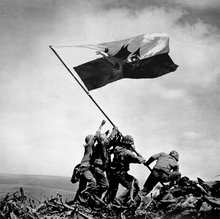Sunday, 31 December 2006
To live in a land free of corruption
I’m currently in the second-least corrupt country in the world, according to the annual survey by the politically non-partisan global civil society organisation Transparency International (TI). No, don’t be silly, it's not Wales; I’m in Finland, which ranked just behind Iceland this year.
Wales is not considered a country as far as the TI survey is concerned, but the United Kingdom was ranked equal eleventh, unchanged from 2004. However, the result was published before Tony Blair announced the termination of the Serious Fraud Office (SFO) investigation into the conduct of BAE Systems plc in the UK’s ‘Al Yamamah’ arms deal with Saudi Arabia.
An SFO statement said it was necessary to balance the need to maintain the rule of law against the wider public interest. It’s horrendous that the Prime Minister should consider there’s a conflict between the two. Since the decision was taken in the ‘wider public interest’, the Government has a duty to explain in detail how the public interest was endangered by the continuation of the criminal investigation.
In a separate statement, the Attorney General, Lord Goldsmith, referred to Article 5 of the OECD Convention on Combating Bribery of Foreign Public Officials in International Business Transactions, which precludes investigations and prosecutions being influenced by considerations of national economic interest or the potential effect upon relations with another State. Although he claimed that the SFO had not been influenced by those considerations, the Prime Minister’s statement suggested otherwise.
It should be noted that BAE Systems has consistently denied any wrongdoing. So why, then, has the SFO been pressured into prematurely terminating an investigation that had been diligently pursued for over two years by a joint SFO and MOD Police team? In terminating the investigation rather than allowing it to be completed, Lord Goldsmith has relieved himself of the duty of deciding whether or not to prosecute and has undermined any vestige of moral and ethical credibility this government might have maintained internationally.
The message from the Westminster government, therefore, is disturbingly familiar. Britain expects other countries to observe their obligations under international anti-corruption conventions, while reserving for itself the right to ignore its own obligations when this is politically expedient.
It might be that Wales could learn a lot from Finland, a country that achieved independence from Russia only after the revolution of 1917, having been part of the Russian empire for more than a century. For 600 years before that, up until Russia beat Sweden in the war of 1808-1809, it was part of the Swedish empire.
Although run as a group of provinces rather than a national entity, the imposition of the Swedish legal system meant that Finnish peasants were never serfs; in fact, Finns have always maintained their personal freedom. Personal freedom and personal responsibility are considered important here and Finnish women were the first in Europe to gain the right to vote in parliamentary elections.
When the Soviet Union tried to invade in November 1939, Finland’s well organised little army managed to inflict massive casualties on a overwhelming number of Soviet troops, ultimately forcing a peace treaty to be agreed in Moscow the spring of 1940. Finland was forced to give up Eastern Karelia, a region the Russians have failed to return since the collapse of the Soviet Union. (Actually, many Finns don’t want it back because of the detrimental effect restoration might have their very high standard of living.)
Then, apart from a hiccup in 1941 when they sided with Nazi Germany against the Soviet Union and were, at the end of the war, forced to cede Petsamo on the Arctic Ocean, the Finns have managed to maintain a peaceful, if uneasy coexistence with their massive neighbour ever since.
Having become a member of the European Union in 1995, following the collapse of the Soviet Union, the Finns are now debating the merits of NATO membership, having maintained a policy of neutrality since the war.
The land area of Finland is approximately 17 times the size of Wales (338,000 square kilometres), which is inhabited by only 5.3 million people. Although 69% of the country is covered by forest and 10% by water (187,888 lakes), electronics (eg. Nokia phones) account for the largest slice of exports, followed by machinery and then wood and paper products.
Despite having two official languages (Finnish and Swedish), having adopted the Euro, having mean temperatures that range between +20C and -20C (I remember it being -45C in Jyväskylä a few winters ago), being covered in snow and ice for 5 months of the year and being in near darkness for 2 of those months, Finland has the highest standard of living in Europe.
If you ask a Finn what they do, they’ll most likely tell you about their hobbies or interests; they won’t assume you mean what they do to get money/status/self-worth. In other words, their value system isn’t focused on wealth. Thus the gap between rich and poor isn’t that great. Consequently, they generally treat each other with kindness and respect and live in a safe environment free of corruption and mostly free of crime (although serious crime now comes over the border from Russia).
They laugh easily and have a great sense of humour despite being the butt of sauna jokes. They used to be the butt of European music jokes too, until Lordy won the Eurovision Song Contest this year. You want to know why a Finnish heavy metal band won a contest known for its sugar-pop-Euro-pap? It was the only entry that wasn’t cynical.
Now, why can’t we build a Finland-like Jerusalem in Wales’ green and pleasant land? I put it to you that it’s only a fear of the unknown holding us back.
Blwyddwyn Newydd Dda. Dal ati!
Click here to check out The Red Dragonhood.
Subscribe to:
Post Comments (Atom)


No comments:
Post a Comment